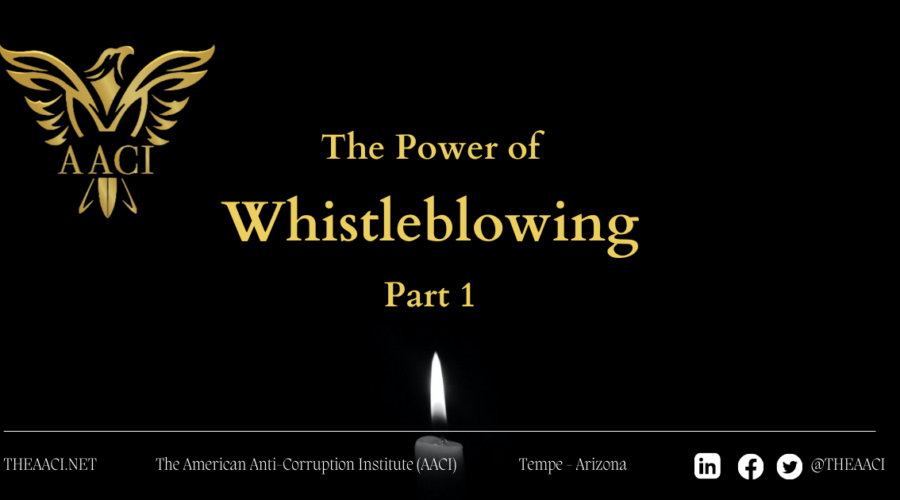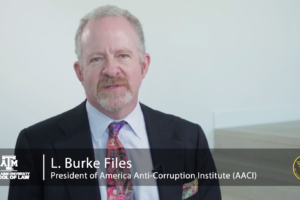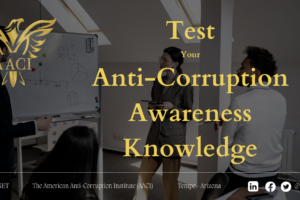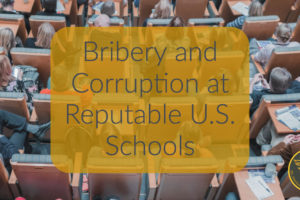Mike J. Masoud
July 21, 2023
The American Anti-Corruption Institute (AACI) defines whistleblowing as follows:
Definition
“Whistleblowing is a deliberate non-obligatory act of disclosure that is made, following the rules and regulations of the applicable law, by a person or persons who have or had privileged access to data or information of an organization, about material illegality or other wrongdoing, whether actual, suspected, or anticipated, which implicates and is under the control of that organization, to an internal and/or external authorized person or entity having the potential to rectify the wrongdoing.” 1
Elements of Whistleblowing 2
1. It is a deliberate non-obligatory act of disclosure.
Deliberate = intentional.
Non-obligatory: under no obligation to do so.
2. Following the rules and regulations of the applicable law
The whistleblower should always act under the applicable rules, laws, and regulations to get protection against the employer’s potential retaliation.
3. By a person or persons who have or had privileged access to data or information of an organization.
Whistleblowers include current and former employees, advisors, board members, vendors, auditors, and other stakeholders subject to meeting the definition of whistleblowing.
4. Material illegality or other wrongdoing, whether actual, suspected, or anticipated.
The subject matter of whistleblowing is not trivial; it is significant. The whistleblower has a reasonable belief that the wrongdoing is actual, suspected, or expected.
5. Implicates and is under the control of that organization,
The subject matter of whistleblowing is linked to and controlled by the entity.
6. To an internal and/or external authorized person or entity having the potential to rectify the wrongdoing.
Whistleblowing could be internal or external. When the complaint recipient is a staff of the organization or a third party assigned by the organization, it is called internal whistleblowing. Otherwise, it is external whistleblowing.
Due to the nature and unique attributes of white-collar crimes, time and time again, whistleblowing proved to be the most anti-corruption and effective tool to deter and uncover fraud and corruption. However, the effectiveness of whistleblowing deterrence depends on the following:
1- Proper and Adequacy of Laws
2- Incentivizing, rewarding, and Protecting whistleblowers
3- Certainty of Punishment
Professor Gary Becker, the University of Chicago Nobel Prize-winning economist, argued in 1968 in a research paper that economic crime was a rational economic activity – if breaking the law leads to higher profits with little risk, it makes financial sense for a business to do so 3. Unfortunately, the economic and financial scandals in the auditing, financial, extractive, and other industries over the past 23 years prove what Professor Beckers reached for. Who should we blame? Who pays the price of uncovered fraud and corruption? Some damages are irreparable, while public trust in government institutions deteriorates.
Sources
1. Exam Unit, “Whistleblowing” in Certified Anti-Corruption Manager (CACM) Review Textbook, 2023 ed. (United States of America: The Exam Unit of The American Anti-Corruption Institute LLC., January 12, 2023) pp. 531-532.
2. Ibid
3. Read more on https://ssir.org/books/excerpts/entry/a_spike_through_corruption
Photo by Rahul: https://www.pexels.com/photo/lighted-candle-695644/











































